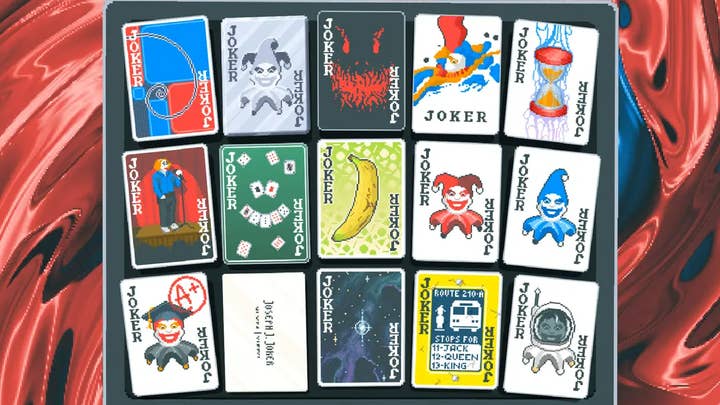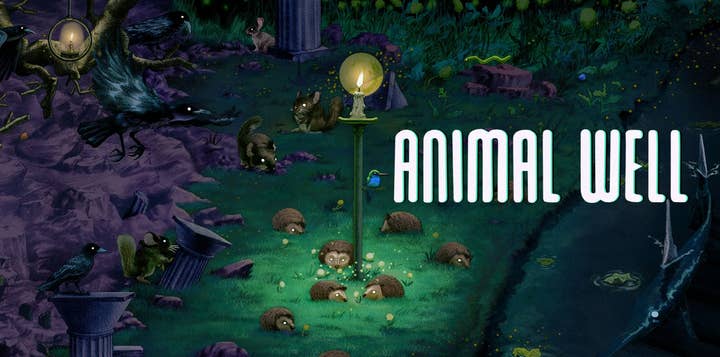The state of games publishing: "The era of the generalist indie publisher is over"
As games publishers scale back their efforts (or close entirely), what does the future look like for the indie side of the industry?
The closure (or near closure) of Humble Games was yet another brutal headline in what has been a bleak 18 months for indie games publishers
We've seen collapsing share prices, redundancies, a reduction in games being signed and entire company closures. Of course, publishers are caught up in the same nightmare that the entire games industry has been dealing with – a drop in game revenue mixed with over-investment and rapidly rising costs. However, there are also some fundamental (and potentially permanent) shifts in the marketplace that are making it harder for publishers to compete.
"I’ve been in publishing for almost ten years and it’s always been uncertain," says Simon Byron, who is currently MD of Yogscast Games. "You can never predict exactly how a game will perform before it’s out. You can have a sense, sure, but accurately forecasting a game’s sales is impossible – I’ve certainly never got it spot on. And that’s tricky for particular companies who have pressures to provide certainty to its shareholders.
"What we’re seeing at the moment are huge changes in the market, where forecasting models haven’t caught up with oversaturation, the impact of subscription services and the prevalence of aggressive discounting. Companies that overstretched during times of plenty now find themselves in a world where more agile companies are moving in and performing better.
"I’m still tremendously excited about the market. There are great games launching all the time, and breakout hits popping off week after week. It’s not that people aren’t buying games – far from it. It’s that the foundations some companies have built their operations upon rely on games selling an unrealistic amount. Many of these companies are still very profitable, which is what makes it even more heartbreaking."
Unrealistic expectations is something that came up multiple times with the businesses I spoke to. Snow Rui, who is CFO and president of publisher Hooded Horse, cites inflated expectations as a challenge for companies with demanding investors and shareholders.
"A lot of the cuts and unrest come from public companies' 'shifting corporate priorities'," she observes. “I believe there’s some inherent tension between public companies’ desire to have predictable revenue trending well at quarterly and annual intervals, and the reality of game development which is fundamentally unpredictable both in timing and in results.”
"There’s some inherent tension between public companies’ desire to have predictable revenue, and the reality of game development"
Snow Rui, Hooded Horse
The unpredictability has seen some publishers become risk-averse, and looking for more predictable and reliable sources of revenue.
John Clark, who has held a series of publishing roles at Sega, Tencent and was most recently CEO of Curve, notes: “Publishers are re-balancing the stability and risk elements within their businesses. More predictable catalogue and long tail games performance underpins stability for publishers whereas, the risk is mostly investing in new IP and new games of existing IP.
“Overinvestment in new games and, in some cases, under delivery in quality has been a factor [in the situation facing publishers]. This, together with the continued strong performance of major titles and increasing number of new games has created the most competitive environment we’ve seen. This has challenged publisher expertise when releasing games and impacted the ability and confidence to invest in new games.”
One indie developer said to me last month that their strategy with their upcoming release was to “put themselves in the best places to get lucky”. He had observed that although there had been plenty of indie hits in recent months, there appeared to be no “rhyme or reason to it”. So we asked our publishers whether spotting potential hits has become harder.

“That’s an impossible task, really,” admits Nigel Lowrie, co-founder and chief marketing officer at Devolver.
“Most people look at various indicators to explain success or a near miss after the fact and then say all the writing was on the wall but no one really knows ahead of time. Certainly you can look at what’s been successful as of late and check off various boxes. But in the end there are so many variables it does feel pretty impossible to really predict what will find success. And I think that plays out when games that seem to have everything going for it falter while games most didn’t track leading to launch go nuts.
“In the end it’s about finding something compelling that offers an audience a unique experience and connecting with that audience by any means necessary. There are some great indicators like wishlists, coverage data, and whatnot but that is all stifled a little bit when you set a game live and start asking for people’s money and time.”
Byron agrees: “It’s the nature of the business that sales will constantly surprise, both by overperforming and underperforming against expectations. But that doesn’t help when running a business, so it’s understandable that we cling on to any pre-launch metrics we can.
“But publishing isn’t a science. And there’s a real danger when we treat it as such, particularly when we ascribe value to pre-launch wishlists and the idea there’s a number you ‘should’ have and a range of what sales you can expect from those wishlists.
“I was talking to one publisher last year on the subject of wishlists. They told me they won’t launch a game unless it has over a specific number. I told them how many we had when we launched PlateUp! and I was told that wasn’t enough. We sold over 200,000 units in the first month, which was significantly more than predicted. And they subsequently issued a profit warning.”
"Publishing isn’t a science. And there’s a real danger when we treat it as such"Simon Byron, Yogscast
Byron adds that neither of them were right on how well the game would do, but that focusing too much on a wishlist number could be counter-intuitive, because if you’ve got a good one, you might relax more.
"Whereas the truth is you need to remain hungry through launch and beyond," he says. "Given how easy they can be to influence, I find wishlists quite a ‘cold’ metric. Indeed, much of the research around conversions ignores the quality of the game. At Yogscast Games, we much prefer looking at how players are engaging with our games in more intimate ways, which is why median playtime on demos and playtests is the key metric for us, followed by external growth on platforms like Discord. If you can see a game gaining traction outside your core circles, that’s a bigger sign of success than some magic wishlist number."
Devolver’s Lowrie adds that although it may seem counterintuitive, risk aversion is actually the riskier approach.
“Those that are willing to experiment and remain agile will find their hits and build an engaged audience,” he says. “Playing it safe isn’t going to be very safe at all.”
Ultimately, the market has shifted to a point where some of the old ways adopted by the more established publishers simply don’t work, and that favours some of the specialists that have recently emerged on the scene.
“Relatively new publishers such as Kepler and Hooded Horse are making a strong impact, it’s refreshing to see,” Clark says. “They seem to be well structured, with smaller teams, close to the games and developers, with a very clear understanding of their niche.
“Referring to my earlier point of balancing stability and risk, publishers who experienced a significant growth phase before hitting the corrective impact of recent years, are transitioning. Newer and smaller publishers have been able to study the market in different ways. They can build a publishing business from a different starting point.”

Yogscast's Byron continues: “The market has undergone such rapid change that we’re still trying to figure out how the various ecosystems interact with each other. Players have so much content available – often for free, pennies or as part of a subscription – that the old models no longer apply.
“The era of the generalist indie publisher is over. Publishers really need to have a focused offering, something they bring that can’t be replicated by anyone else. We are already seeing a shift, just look at the emergence of specialist publishers and labels who really focus on particular sectors. They seem to be performing better than those without a particular genre of expertise. It’s so much more effective to build a community around a publishing identity rather than across a collection of disparate games.”
It seems bleak, but all our publishers observe that there have been numerous successes through self-publishing, which is becoming an increasingly viable direction for indie teams.
“Self-publishing and the knowledge needed to do it well have never been more available,” notes Hooded Horse’s Rui. “Publishers will really have to prove their value and offer good terms, as self-publishing is not a bad alternative right now, and that’s as things should be.”
Lowrie agrees: “Self-publishing is a fantastic option for those that can and want to tackle it all themselves. There’s been an immense amount of success through self-publishing the past few years and it’s inspiring to watch.
“The issue is there are more developers and projects than there are resources to help them and ultimately only so much money and - maybe more importantly - time for players to support those projects.”
"I genuinely believe that this chaos will result in a new era of creativity."Nigel Lowrie, Devolver
So what does the future hold for the indie publishing scene? All of those we spoke to say that there’s no going back to how things were.
“There is a level of permanent change,” Clark says. “Organisational disruption is resulting in excellent talent being available in the market. We will see and are seeing new publishers starting and creating businesses in ways that they wouldn’t otherwise have done so.”
And indeed, it’s the formation of new, creative publishers and studios that ultimately offers hope for those operating within the indie scene.
“It can see that the unfortunate culling down of studios and publishers will continue for a bit longer,” Lowrie concludes. “But from those ashes I’d expect to see new small studios full of talented developers from all areas of the industries learning from the mistakes of their former executives and taking measured, creative risks to continue to push the medium forward into unexpected directions.
“It feels like there is a category of larger companies that have probably become too big to take real creative risks - if you even want to call it a risk - and will continue to fall back on well trodden territory they know well and can sell to their existing audiences.
“These smaller studios will create new sub-genres that break out and those risk averse larger companies will follow suit with their versions after. We’ve seen it with battle royales, party royales, etc. and I have no doubt we’ll see a rush of AAA takes on games like Lethal Company and Pacific Drive.
“It’s no doubt a pretty dark time on the game making side of things but I genuinely believe that this chaos will result in a new era of creativity.”

